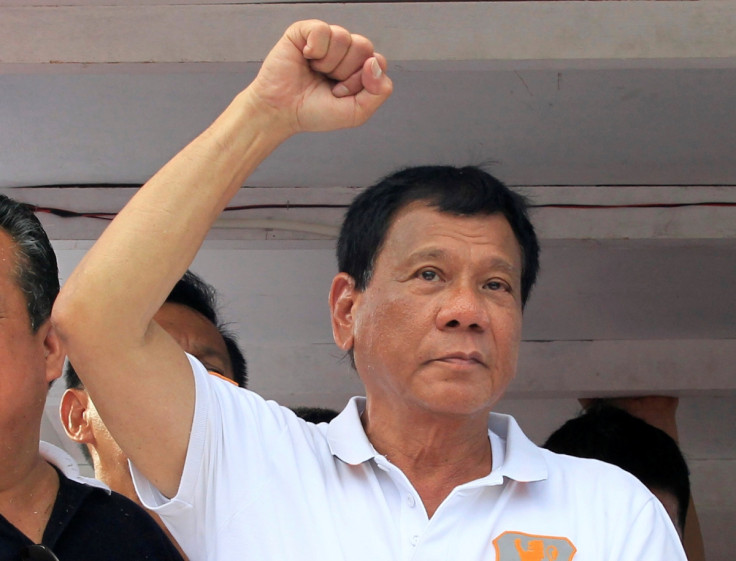Philippines President-elect Rodrigo Duterte vows to bring back capital punishment

Barely days after being elected into the highest office in the Philippines, President-elect Rodrigo Duterte has vowed to make his controversial election promises a reality. His presidential campaign included a strong theme of bringing back capital punishment and to give security forces the green light to 'shoot to kill.'
Speaking at his first news conference since winning the presidential election on Sunday (15 May), Duterte, 71, told reporters: "What I will do is to urge Congress to restore the death penalty by hanging." He said that his campaign promises were not just rhetoric.
Capital punishment in the Philippines was abolished in 2006, by the then-president Gloria Arroyo. He plans to reintroduce the death penalty for a variety of crimes, in particular drugs, rape, murder and robbery. If Duterte does introduce capital punishment, the Philippines will be joining a number of other Southeast Asian countries that already have such penalties for crimes such as murder and drug trafficking.
He has also said that permission to 'shoot to kill' will be given for organised crime figures and those resisting arrest. "If your resist, show violent resistance, my order to police [will be] to shoot to kill. Shoot to kill for organised crime. You heard that? Shoot to kill for every organised crime," he said.
Duterte did not stop there, also vowing to introduce a 2am curfew on drinking in public places. Children will also be banned from walking on the streets alone late at night, with the parents of children picked up on the streets at night liable to be arrested and jailed for "abandonment," he said.
Duterte had, during his election campaign, vowed to kill drug dealers and dump their bodies in the Manila Bay. He even said that members of the security forces and will be given immunity from prosecution after they left office. The immunity will also be extended to himself, he said.
While he was the mayor of the southern town of Davao, he is reported to have severely brought down crime numbers in the area. He was nicknamed 'The Punisher' after more than 1,000 criminals were killed by security forces in Davao during his leadership.
Duterte won the 9 May presidential election in a landslide victory. He will be sworn into office on 30 June for a six-year term, taking over from Benigno Aquino. He was dubbed 'the Donald Trump of the Philippines' for his often controversial comments.
More to Duterte than meets the eye?
But according to Time, there is more to Duterte than meets the eye. It noted that he supported the lesbian, gay, bisexual and transgender community's rights, having previously firmly condemned discrimination against the LGBT community. He has also promised he would consider legalising same-sex marriage and allowing LGBT people to serve in the military.
Despite having admitted to being a womaniser and making public 'jokes' about gang rapes, he has the backing of several prominent women rights' activists who point to his work in improving opportunities for women in government. His programme was enacted by the Philippine federal administration and operates at a national level.
© Copyright IBTimes 2025. All rights reserved.






















